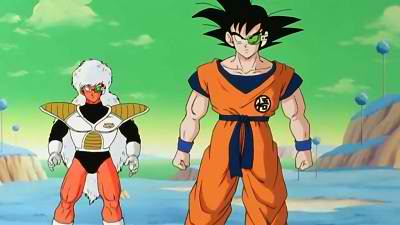Can't Feel The Right Muscles Activate During A Lift?
Fix It By Improving Mind-Muscle Connection!
Command your muscles to grow! Is this something fun we like to say out loud, or is there some hidden truth to this statement? It’s no secret that beginners have a hard time “feeling” specific muscles when they exercise and the most common question I receive is:
“How do I feel a bench press in my chest when I only feel it in my arms?”
The reason why many people have a hard time “feeling” specific muscles being engaged has to do with their “Mind Muscle Connection (MMC) and I have a news flash for you, it’s not ONLY beginners that have a hard time with this.
What Is The Mind Muscle Connection?
MMC is your ability to increase the number of muscle fibers being recruited when lifting. The more muscle fibers you are able to recruit the stronger you will be on your lifts and the more muscle you will be able to break down to stimulate growth. But this is much more than just feeling the muscle working or visualizing the contraction. It’s a real occurrence that happens inside your body that influences neuromuscular dynamics during resistance training.
The MMC occurs at the neuromuscular junction. What happens is your brain releases a chemical neurotransmitter called 'Acetylcholine' to communicate with muscles in the body. Once released at the neuromuscular junction it crosses the "synapses" which is the tiny space that separates the nerve from the muscle where it binds to receptors on the surface of muscle fibers. This is what causes the muscle contraction. Now, if you think about how a single muscle head is made up of many individual muscle fibers you are actually increasing the number of muscle fibers being recruited when you perform a lift by improving your MMC. This will result in more quality muscle contractions which means more strength and growth resulting from your workouts.
How Do I Increase My MMC?
While the majority of us believe in the Mind-Muscle Connection, there are still those who believe that if you just focus on proper form when performing an exercise the right muscles will do their job automatically. This couldn’t be farther from the truth and I am going to explain why. Let’s take a look at some of the big compound lifts such as a squat, deadlift or bench press. There is much more going on here than “I pick things up and put them down”. On deadlifts and squats for example you need to push through your hips with a massive force to complete the exercise. But you won’t lift nearly as much weight unless you learn how to contract your glutes during this portion of the movement. The same can be said for the bench press. You are not just lying on a bench and lifting a bar. You need to plant your feet, flex your glutes, retract your shoulder blades and then learn how to drive through your feet to press the bar. All three exercises also heavily depend on activating your internal belt as well which is a whole other story. (You can learn more about here- video)
Learn more about your INTERNAL BELT here:
But don’t feel overwhelmed guys, targeting muscles gets easier with practice. A great way to get started would be to spend some time flexing your muscles in the mirror to learn how to activate them independently of each other. You must understand that until you can improve your MMC, you are at a significant disadvantage when compare to an advanced lifter as we can manipulate various exercises to target specific muscles without having to significantly altering our form.
One of the easiest ways to learn how to do this is to work with LIGHT WEIGHT, a SLOW TEMPO and a LIGHTER GRIP when performing various movements. For example try to perform a skull crusher or a barbell bicep curl with a super loose grip and a 2 – 2 – 2 TEMPO. You will notice that this almost instantly takes away the majority of the forearm engagement that would naturally occur during these movements and allow you to really focus and isolate your triceps or biceps.
The same can be said for the barbell bench press, aside from form issues, a lot of people have a hard time feeling their chest activate because their arms fatigue first. By reducing the weight and slowing down the reps, your body will now FINALLY have time to focus and by having a light grip you will not be distracted by muscle contractions in your arms.
So what is the main point being taken away from here? It is that focus is key and focus is something that cannot be rushed. As you become a more advanced lifter you will soon realize that once you learn how to focus on contracting individual muscles that the next step is learning how to contract them in in proper amounts and in proper combinations during specific movements for optimal performance, and these ratios will change whether your goal is to develop maximum strength, endurance, or activation.
But don’t overwhelm yourself just yet, one step at a time Nation.
Can Your MMC Get Worse Over Time?
Ever go to the gym and see your fellow lifters just “going through the motions”. For example using momentum to swing a 135lbs barbell bicep curl for reps or just bouncing the barbell off their chest on the bench press or off the floor for deadlifts? Or maybe you even catch those few people who utilize the rubber stoppers at the bottom of the weight stack as a bouncing pad so they can lift the whole weight stack.
If this is you or someone you know, you are not only running the risk of a serious injury, but your MMC is decreasing daily.
Too many people get obsessed with how much weight they're lifting rather than how much WORK their muscles are actually doing. Your muscles don't grow because of the weight moving up and down. They grow because they're FORCED to contract when isolated.
To break this down even more, just because you are moving more weight doesn't mean that your target muscles are doing more work.
For example, if you are performing dumbbell bicep curls and on each and every repetition you have to contort and swing your body to curl the dumbbell and then you just let that dumbbell fall to the not only are your target muscles getting the short end of the stick, but this increases your risk of injury.
Now, if you consistently train like this your brain will never learn how to properly communicate with your muscles and your Mind-Muscle Connection can actually begin to get worse which will lead to ZERO GAINS. Therefore, you should always focus your mental energy on contracting your target muscles rather than on moving heavy weight.
If the above didn’t drive home the importance of MMC, let me leave you with one last thought. In order to understand why the MMC is so important, you have to understand the difference between primary and secondary movers. The primary mover is the muscle that is intended to do the most work in during an exercise and the secondary movers are muscles that support the primary mover. For example when performing a pull-up your lats would be the primary mover (targeted muscle) and your biceps would be the secondary mover and your goal should be feeling each and every rep in the targeted muscle. If you feel like you have something to prove and don’t check your ego at the door, you may be able to crank out 30 pull-ups in a row but how much “work” did you actually do in terms of targeting and growing your lats?
Tips To Improve Your Mind Muscle Connection!
Here are some quick tips to help you focus and improve your MMC
- Practice Flexing In The Mirror. This will help you visualize your contractions. You can also try flexing your targeted muscles in between sets during your workout. This will force more blood into the area giving you the “pump” feeling which will in turn make it easier to focus on that muscle group during the exercise.
- Change The Focus Of Your Workouts. Once you have acquired “the pump” during your regular workout change your focus to isolating the target muscle group. For example, if you have a hard time targeting your chest, once you have completed 2 – 3 exercises and your chest is beginning to feel pumped, immediately lower the weight and slow down the tempo of your reps so you can work on your MMC during your chest movements.
- Warm-Up Sets. When training heavy, try performing a few warm-up sets with lighter weight working your way up to your working sets. For example, if your goal is to train in the 3 – 6 rep range. Try a few sets of 12 reps, 10 reps and 8 reps to help your body focus on contracting the muscles in the area you are working for better performance on the heavier reps.
- Switch From Heavy Sets To Light Sets. For example, if you are performing heavy deadlifts focus on proper form. Once you complete all your sets, significantly lower the weight, still maintain proper form, but change the focus to concentrating and activating the target muscles needed to perform the movement.
- Perform Slower Reps. You will need to use lighter weight and the goal here is to have a 3 – 4 second concentric (positive) and eccentric (negative) part of the repetition and a 1 second pause at the point of maximum contraction. This slow tempo will give you ample time to completely focus on the targeted muscles for maximum engagement and improved MMC.
- Check Your Ego At The Door! Remember its QUALITY over QUANTITY when it comes to increasing muscle and strength. The most common reason why people have poor MMC is because they become obsessed with how much they can lift opposed to creating stronger muscle contractions.
- Get In The Zone! The gym is not a social club. If you can’t mentally block out distractions such as other members talking to you or pressures from your job or life at home you will not be able to focus on your workout. A good way to help with this is to remember that you plan on being at the gym for a specific amount of time each day regardless of anything that may be on your mind. So, if you plan to be at the gym for an hour there is nothing you can do about any of the external distractions you may have, so turn them off. They will be there when you are done your workout and you can take care of them then.
Remember how weak Captain Ginyu was after the took over Goku’s Body?

He had poor mind-muscle connection...






